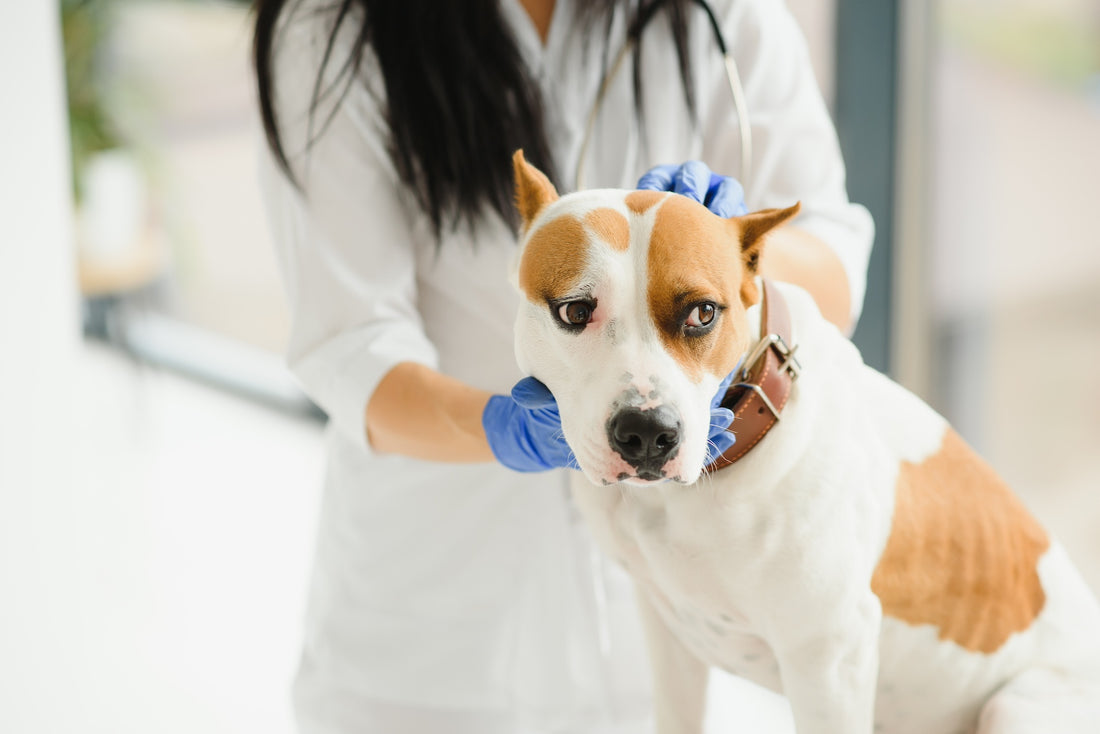
Preventive Care: The Key to a Long, Healthy Life for Your Dog
Share
As a pet parent, you want your dog to live a long, happy, and healthy life. While treating illnesses is important, prevention is even better. Preventive care ensures that your furry friend stays in optimal health, reducing the likelihood of serious health issues and enhancing their quality of life. Here’s a comprehensive guide to understanding and implementing preventive care for your dog.
Why Preventive Care Matters
Preventive care focuses on proactively addressing potential health concerns before they become serious problems. This approach:
- Increases lifespan: Regular check-ups and early detection can add years to your dog’s life.
- Reduces medical costs: Preventing diseases is often less expensive than treating them.
- Improves quality of life: A healthy dog is a happy dog, free from pain and discomfort.
Components of Preventive Care
- Routine Veterinary Visits
Regular check-ups are the cornerstone of preventive care. Your veterinarian can:
- Monitor your dog’s overall health.
- Identify early signs of illnesses.
- Provide vaccinations and parasite prevention.
Frequency: Puppies may require monthly visits during their first year, while healthy adult dogs should visit the vet at least once a year. Senior dogs benefit from biannual check-ups.
- Vaccinations
Vaccines protect your dog from life-threatening diseases such as rabies, parvovirus, and distemper. Your vet will recommend a vaccination schedule based on your dog’s age, lifestyle, and risk factors.
- Core vaccines: Essential for all dogs (e.g., rabies, distemper, parvovirus).
- Non-core vaccines: Tailored to your dog’s environment (e.g., Lyme disease, leptospirosis).
- Parasite Prevention
Parasites like fleas, ticks, and heartworms can cause serious health issues. Preventive treatments include:
- Flea and tick preventives: Use topical treatments, collars, or oral medications.
- Heartworm prevention: Administer monthly tablets or injections as recommended by your vet.
- Deworming: Regular deworming is essential, especially for puppies.
- Nutrition and Weight Management
A balanced diet and healthy weight are critical for your dog’s well-being. Obesity can lead to diabetes, joint problems, and heart disease.
- High-quality food: Choose a diet appropriate for your dog’s age, size, and activity level.
- Portion control: Avoid overfeeding and limit treats.
- Supplements: Consider supplements for joint health, skin and coat care, or digestion, as recommended by your vet.
- Dental Care
Oral health impacts your dog’s overall health. Poor dental hygiene can lead to gum disease, tooth loss, and infections.
- Brush regularly: Use a dog-specific toothbrush and toothpaste.
- Dental chews: Provide chews that help reduce plaque and tartar.
- Vet cleanings: Schedule professional dental cleanings if needed.
- Exercise and Mental Stimulation
Physical activity and mental enrichment keep your dog fit and prevent boredom-related behaviors.
- Daily walks: Provide regular exercise tailored to your dog’s energy levels.
- Interactive toys: Use puzzle toys or training games to challenge your dog’s mind.
- Socialization: Expose your dog to new experiences, people, and pets.
- Grooming and Hygiene
Grooming isn’t just about keeping your dog looking good—it’s also vital for their health.
- Bathing: Use dog-friendly shampoos to clean your dog’s coat.
- Nail trimming: Regular trims prevent discomfort and injuries.
- Ear cleaning: Keep ears clean to avoid infections, especially in floppy-eared breeds.
- Monitoring Behavioral Changes
Subtle changes in behavior can indicate underlying health issues. Watch for:
- Lethargy or unusual tiredness.
- Changes in appetite or water intake.
- Limping, scratching, or other signs of discomfort.
If you notice anything unusual, consult your vet promptly.
Preventive Care for Different Life Stages
Puppies
- Vaccinations and deworming are top priorities.
- Socialization is crucial during this stage.
Adult Dogs
- Focus on maintaining a balanced diet, regular exercise, and routine vet visits.
- Monitor weight and dental health.
Senior Dogs
- Increase the frequency of vet visits.
- Look out for age-related issues like arthritis or cognitive decline.
- Adjust diet and exercise to meet their changing needs.
- Check if the dog requires supplements for bone health, tummy health or skin health
Preventive care is the foundation of a long, healthy, and happy life for your dog. By staying proactive and working closely with your veterinarian, you can ensure your furry friend enjoys every moment with you to the fullest. Remember, the best care is preventive care—because your dog deserves nothing less!

